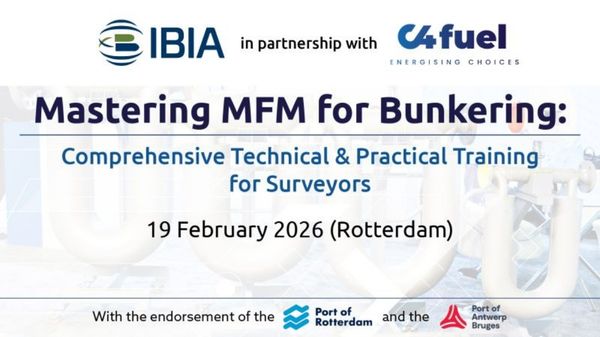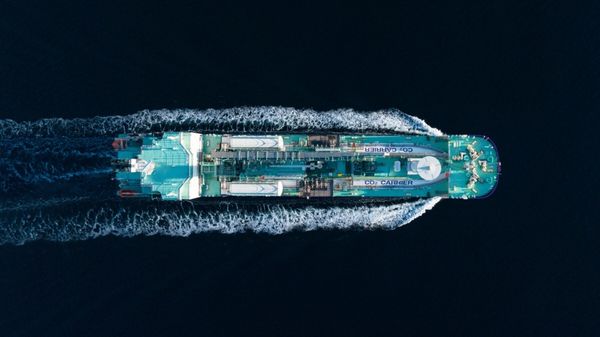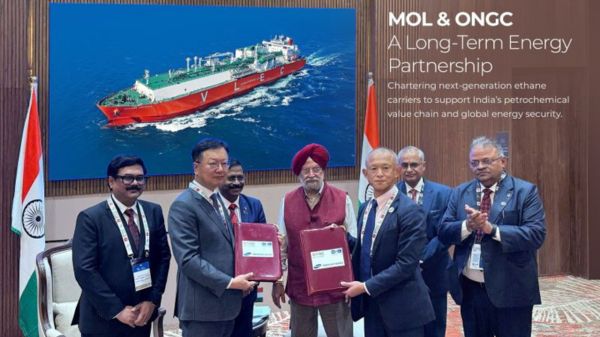

|
Maersk takes delivery of first methanol-capable vessel in 9,000-teu series
Tangier Maersk is the first of six mid-size container ships with methanol-capable dual-fuel engines. |
|
|
|
||

|
IBIA to run surveyor training course for mass flow meter-equipped bunkering in Rotterdam
One-day course scheduled for 19 February aims to prepare professionals for MFM-equipped bunkering operations. |
|
|
|
||

|
MOL secures two 12,000-cbm CO2 carriers for Northern Lights expansion
Japanese shipowner to deliver vessels in 2028 for cross-border carbon transport and storage project. |
|
|
|
||

|
MOL and ONGC sign 15-year charter deal for two ethane carriers
Japanese shipowner expands fleet to 16 vessels with newbuildings scheduled for delivery in 2028. |
|
|
|
||

|
Dual-fuel container ship and vehicle carrier fleet reaches 400 vessels
World Shipping Council reports 83% increase in operational dual-fuel vessels during 2025. |
|
|
|
||

|
Lloyd’s Register publishes first guidance notes for onboard hydrogen generation systems
Classification society addresses regulatory gap as shipowners explore producing hydrogen from alternative fuels onboard. |
|
|
|
||

|
Rotterdam bunker industry faces upheaval as new regulations drive up costs and shift volumes
Red III compliance costs and a mass flow meter mandate are creating operational challenges across the ARA region. |
|
|
|
||

|
VPS appoints Neil Chapman as managing director for the Americas
Maritime services company names industry veteran to lead regional operations and client partnerships. |
|
|
|
||

|
Maritime industry shifts towards LNG as alternative fuel enthusiasm stalls
Geopolitical concerns drive shipping leaders to prioritise established fuels over newer alternatives, survey finds. |
|
|
|
||

|
OceanScore reaches $5m annual recurring revenue as emissions compliance demand grows
Hamburg-based firm supports compliance workflows for more than 2,500 vessels as regulations enter operational phases. |
|
|
|
||
| Scrubber test facility up and running in Denmark [News & Insights] |
| Exhaust gas cleaning system for Robin Hood [News & Insights] |
| NCL's first vessel with scrubber technology [News & Insights] |
| Scrubber systems for Color Line ferries [News & Insights] |
| DFDS orders exhaust gas cleaning systems [News & Insights] |